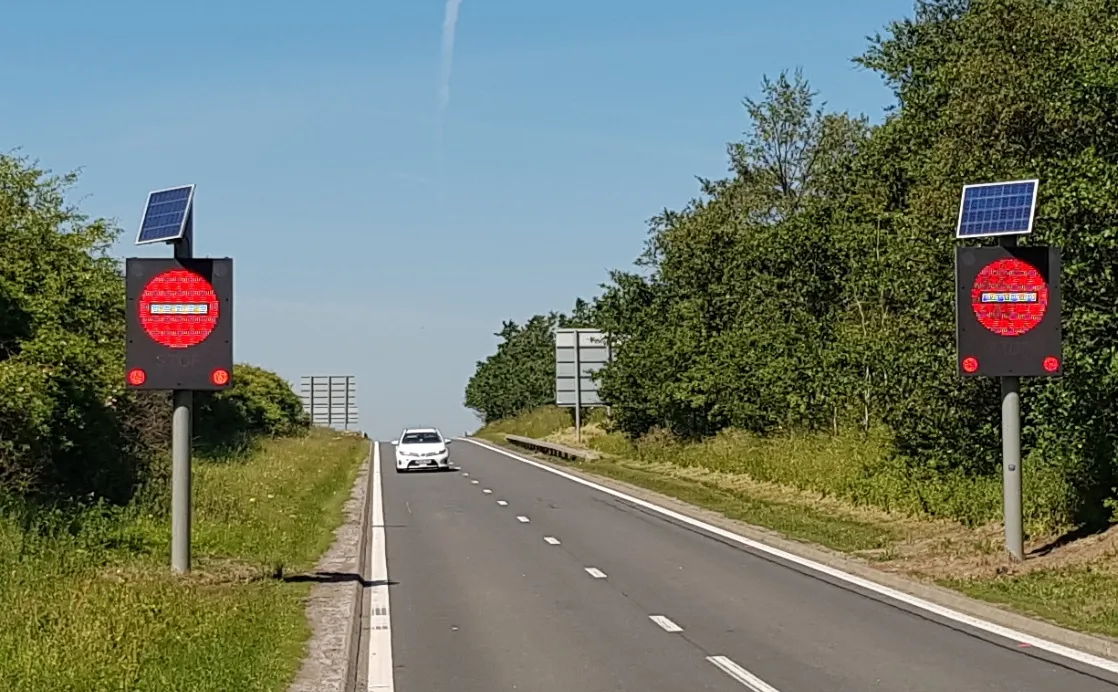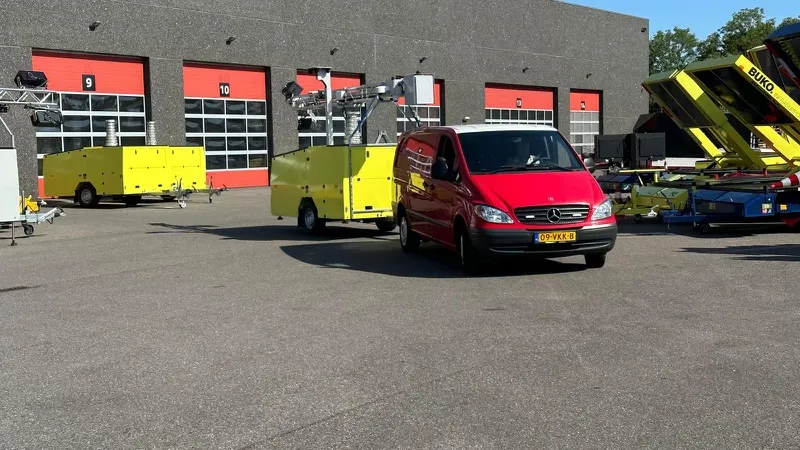
Road operator Amey commissioned Clearview Intelligence to install the country’s first wrong-way slip detection on slip roads near the villages and towns of Philpstoun, Wallyford, Tranent and Lasswade. It follows reports of numerous vehicles turning onto the slip lanes and into the path of motorists exiting the motorways and dual carriageways at high speed.
“This is the first time such a solution has been implemented in Scotland and we are proud to be the team to deliver it,” said Chris Keenan, general manager for the Scottish region with Clearview. “By travelling the wrong way on these slip lanes drivers risk a head-on collision with motorists exiting the junction or driving into the path of three lanes of oncoming traffic if they reach the motorway carriageway.
At all locations there was a static no-entry sign and white road markings to indicate one-way traffic flow.
Clearview’s system detects vehicles incorrectly turning onto the slip road and uses vehicle activated signs to flash a no-entry warning sign to the transgressing motorist, instantly alerting them of their error.
The system uses inductive loops installed in the carriageway and Clearview’s M680 count and classify system to register the direction of vehicles travelling along the slip lanes. When it detects a vehicle travelling the wrong way, it triggers solar powered vehicle activated signs to flash a no-entry symbol ahead of the drivers, prompting them to turn around.
At both Tranent and Lasswade, Clearview’s system includes cameras and an auto-alert system from the company’s Insight software platform to notify the Traffic Scotland control centre of a potential hazard.
“Since installing the system, we have recorded incidents of drivers travelling the wrong way at each of these sites, but fortunately turning around in time to avoid colliding with traffic coming at high speeds in the opposite direction,” said Keenan.








